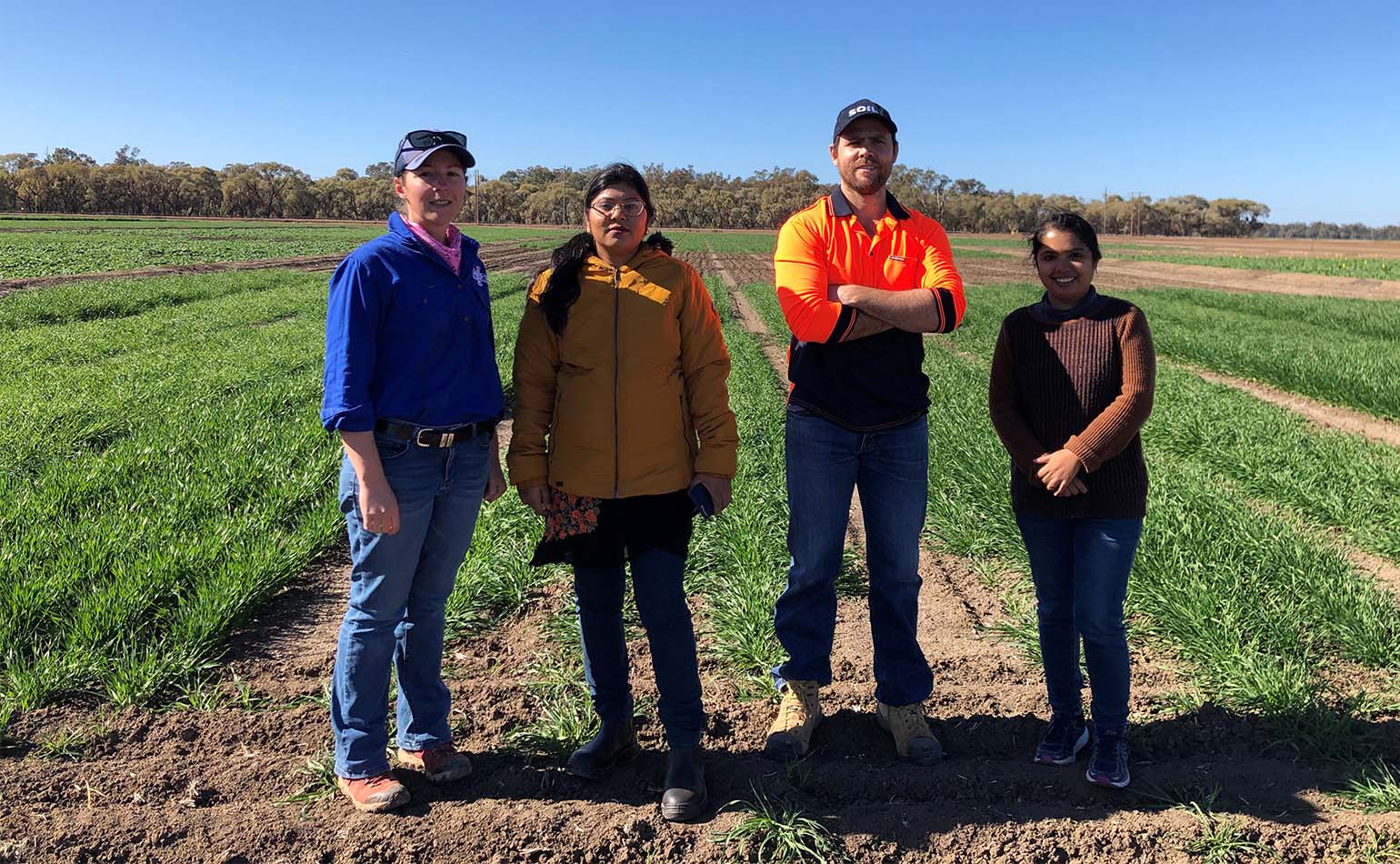At Central West Farming Systems Group – Condobolin NSW
Project: Recovering nutrients from organic waste streams
Project Leader: Dr Dane Lamb – The University of Newcastle
Program: 3
Duration: Three years
This project aims to develop innovative fertiliser products derived from wastewater from various sources such as poultry and pig manure, dairy farm wastes, sewage and industrial effluents. This has the dual benefit of developing cost-effective new products, while also limiting the potential environmental impacts associated with excess nutrients in wastewater.
Large-scale agricultural systems rely on inputs of nitrogen and phosphorous which can be costly for farmers. Although phosphorous is significantly present in many agricultural soils, it is not always readily available to agricultural crops because it is often present in insoluble inorganic forms.
Every year, large quantities of organic waste streams, rich in these nutrients, are produced globally. The total quantity of phosphorous from various waste streams in Australia is around 20 times higher than the current agricultural demand. There is a particularly strong need to recover phosphorus from waste streams due to its dwindling availability from traditional rock phosphate sources. The nutrients present in organic waste streams can also pose a threat to the environment by nutrient enrichment causing problems such as surface water eutrophication.
Developing new fertiliser products will need to be accomplished through inexpensive, locally sourced nutrient reserves and innovative technologies to ensure cost-effective cultivation and enhanced productivity. The waste-derived fertiliser products will be assessed across a range of farming systems and soil types.
One of the expected outcomes will be increased crop productivity in Australia, which will contribute to global food security directly and through technology generation.
Project Update
The project team have been busy in the lab developing the necessary product initiation phases to develop new, innovative and cost-effective fertiliser products. They are currently utilising three different approaches for the development of fertiliser products. These are being trialled for effectiveness.
The University of Newcastle members of the project visited the Central West Farming Systems (CWFS) group in western NSW in August to discuss the project and continued collaboration into the next phase. The team collected bulk soil samples for experimental work and they also collected nutrient rich wastewaters from the region, which included two bulk samples of water from piggery and dairy operations.
The high nutrient content of these wastewaters can cause environmental impacts in surface and groundwater. Piggery and dairy operations must manage their wastewaters to avoid any potential impacts. However, the best approach is to utilise the nutrients for improving agricultural outputs, such as essential fertilisers.
Soil CRC scientists from the University of Newcastle (Dane Lamb and Anitha Kunhikrishnan) and Southern Cross University (Professor Andrew Rose) also visited the National Synchrotron Radiation Research Centre of Taiwan in order to probe the molecular environment of initial products developed in the project.
Next Steps
The project is continuing to develop and test products in the laboratory. The new products will be applied to wastewaters derived from different sources such as piggeries and dairies for fertiliser development.
Participants
The University of Newcastle
Griffith University
Southern Cross University
Central West Farming Systems
Primary Industries and Regions South Australia
Australian Organics Recycling Association
South East Water
Herbert Cane Productivity Services
Landcare Research NZ

